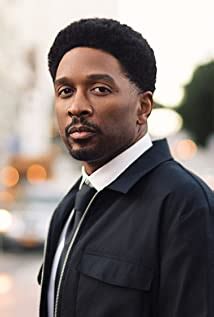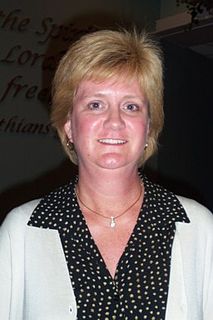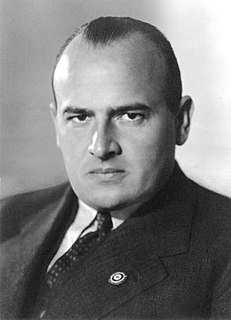A Quote by Lawrence Kohlberg
The main experiential determinants of moral development seem to be amount and variety of social experience, the opportunity to take a number of roles and to encounter other perspectives.
Related Quotes
To make our position clearer, we may formulate it in another way. Let us call a proposition which records an actual or possible observation an experiential proposition. Then we may say that it is the mark of a genuine factual proposition, not that it should be equivalent to an experiential proposition, or any finite number of experiential propositions, but simply that some experiential propositions can be deduced from it in conjunction with certain other premises without being deducible from those other premises alone.
The number one thing I will take with me is my experience as a social worker who saw what happened to families who couldn't find jobs, struggled to take care of their health and saw opportunity slipping away for their kids. I ran for Congress because politicians were fighting with each other instead of looking out for these families.
Moral Injury is differentiated from PTSD in that it directly relates to guilt and shame veterans experience as a result of committing actions that go against their moral codes. Therapists who study and treat moral injury have found that no amount of medication can relieve the pain of trying to live with these moral burdens.
This problem [of historical opportunities] compounds itself by limiting the number of people in the pipeline to attain the experience to do larger movies or get jobs so they can familiarize themselves with a studio head and get the opportunity to deliver and impress - or maybe direct a smaller movie. It will take a considerable amount of time to rectify. It's very difficult because it starts at the top.
What we experience in various and specific milieux, I have noted, is often caused by structural changes. Accordingly, to understand the changes of many personal milieux we are required to look beyond them. And the number and variety of such structural changes increase as the institutions within which we live become more embracing and more intricately connected with one another. To be aware of the idea of social structure and to use it with sensibility is to be capable of tracing such linkages among a great variety of milieux. To be able to do that is to possess the sociological imagination
As blacks, we need not be afraid that encouraging moral development, a conscience and guilt will prevent social action. Black children without the ability to feel a normal amount of guilt will victimize their parents, relatives and community first. They are unlikely to be involved in social action to improve the black community. Their self-centered personalities will cause them to look out for themselves without concern for others, black or white.
Belonging to a group can provide the child with a variety of resources that an individual friendship often cannot--a sense of collective participation, experience with organizational roles, and group support in the enterprise of growing up. Groups also pose for the child some of the most acute problems of social life--of inclusion and exclusion, conformity and independence.
Reductionist ideology not only hinders biologists from thinking adequately about the phenomena we wish to understand: it has two important social consequences: it serves to relocate social problems to the individual rather than exploring the societal roots and determinants of a phenomenon; and second, it diverts attention and funding from the social to the molecular.




































